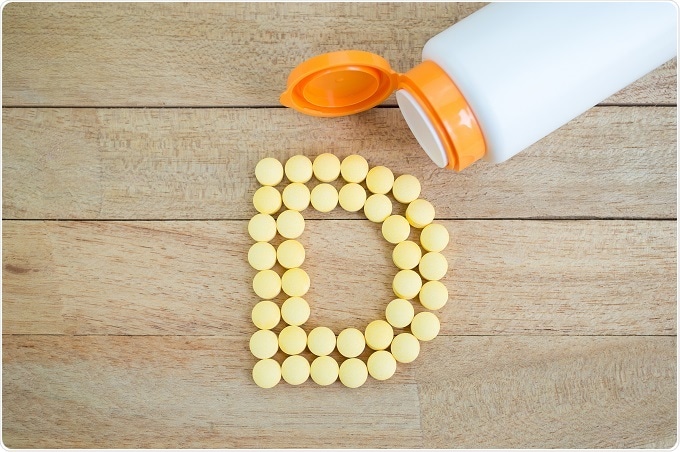An increasing number of adults in the U.S. are taking too much vitamin D, say researchers, with 3% supplementing at doses that have previously been associated with an increased risk of serious side effects such as kidney stones, certain cancers and even death.
 Credit: NatchaS/Shutterstock.com
Credit: NatchaS/Shutterstock.com
In the body, vitamin D aids calcium absorption and helps maintain healthy calcium and phosphate levels in the blood. However, an excess of the vitamin can cause too much calcium to be absorbed, which can damage soft tissues such as the kidneys and heart and cause vascular calcification.
Matthew Drake (Mayo Clinic, Rochester, Minnesota), who was not involved in the study, advises that younger or otherwise healthy people who get enough sun are generally less likely to be vitamin D deficient. For those who do want to supplement, he says “1,000 to 2000 IU (international units) of vitamin D daily is a very safe level of supplementation which will keep the vast majority of people in an optimal range.”.
As reported in JAMA, senior author Pamela Lutsey (University of Minnesota in Minneapolis) and colleagues analyzed nationally representative data for 39,243 adults between 1999 and 2014. They looked at how many people took a daily vitamin D dose of 1,000 IU or more and how many took 4,000 IU or more, which is the maximum recommended limit for avoiding adverse side effects.
The study showed that in 2013-2014, 18.2% of people took a daily dose of 1,000 IU or more, compared with just 0.3% in 1999-2000. The proportion of people who took 4,000 IU or more in 2013-2014 was 3.2%, compared with less than 0.1% prior to 2005-2006. In 2013-2014, the prevalence of daily intake of 4,000 IU or more was highest among those aged 70 years or older, women and non-Hispanic whites.
The findings suggest that people in the U.S. are taking too much vitamin D.
“Characterizing trends in vitamin D supplementation, particularly at doses above the tolerable upper limit, has important and complex public health and clinical implications,” write Lutsey and team.